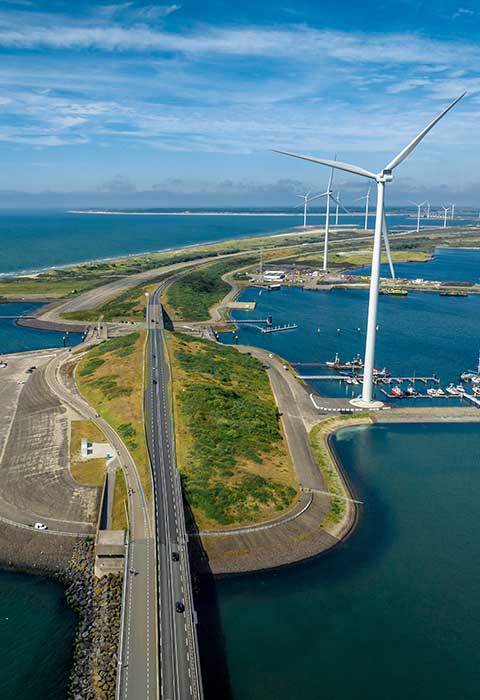
Master of Science in Climate Science and Engineering
Master of Science in Climate Science and Engineering
Overview
Climate change is and will be a defining issue for civilization in the 21st century. Offered jointly by the Department of Civil and Environmental Engineering in the College of Engineering and the Department of Marine and Environmental Sciences in the College of Science, the MS in Climate Science and Engineering prepares students to tackle the inherently multidisciplinary challenges that climate change presents for both natural and engineered systems.
Upon completion of the program, students will be prepared for climate-facing positions in engineering and industrial firms, consultancies, and environmental organizations in the public and private sector. They can also pursue a doctoral-level research program.
Innovative Curriculum
The program provides training in the fundamental science of climate systems, as well as the engineering strategies and technologies required for decarbonization and adaptation to climate change. The curriculum includes a core set of courses that build essential knowledge and analytical skills, with restricted electives that allow students to explore climate-related topics from low-carbon energy systems to nature-based solutions to urban adaptation planning.
Northeastern‘s interdisciplinary, highly accomplished faculty are researching climate change in the field, in the laboratory, and through state-of-the-science climate and Earth system modeling. These efforts are supported with state-of-the-art labs and facilities across our global campuses.
Students can choose coursework, report, or thesis-based options.
The program is available full-time or part-time. It can be completed in 1 to 2 years.
Incoming students will typically hold a bachelor’s degree in a science, engineering, or related field.
- Describe carbon cycling in earth systems and the effects of climate forcing in atmospheric, terrestrial, and ocean systems.
- Design and analyze the technical potential of proposals to mitigate greenhouse gas emissions.
- Design and analyze the technical potential of proposals to adapt to climate change.
- Communicate effectively on climate topics between science and engineering disciplines and with the general public.
Over 15 graduate certificates are available to provide students the opportunity to develop a specialization in an area of their choice. Certificates can be taken in addition to or in combination with a master’s degree, or provide a pathway to a master’s degree in Northeastern’s College of Engineering. Master’s programs can also be combined with a Gordon Engineering Leadership certificate. Students should consult with their faculty advisor regarding these options.
Experiential Learning
Northeastern combines rigorous academics with experiential learning and research to prepare students for real-world engineering challenges. Northeastern is an R1 research institution, rated among universities with the highest research activity.
The Cooperative Education Program, also known as a “co-op,” is one of the largest and most innovative in the world, and Northeastern is one of only a few that offers a co-op program for graduate students. Through this program, students gain up to eight months of professional experience employed in their field of interest as part of the academic curriculum, giving them a competitive edge upon graduation. The College of Engineering has over 3,000 co-op employer partners globally. Our dedicated team of co-op coordinators prepare students for the co-op experience through resume building, developing interview skills, and guiding professional development.
Program Goals
Upon completion of the program, students will be prepared for climate-facing positions in engineering and industrial firms, consultancies, and environmental organizations in the public and private sector. They can also pursue a doctoral-level research program.
According to the U.S. Bureau of Labor Statistics, a 4% and 5% increase in jobs are forecasted for environmental engineering and environmental scientists, respectively, from 2021 to 2031. Additionally, according to MyFuture, a Department of Defense publication, 60% of climate policy analysts have a master’s degree.
Academic Advising
The Academic Advisors in the Graduate Student Services office can help answer many of your questions and assist with various concerns regarding your program and student record. Use the link below to also determine which questions can be answered by your Faculty Program Advisors and OGS Advisors.
Admissions & Aid
Ready to take the next step? Review degree requirements to see courses needed to complete this degree. Then, explore ways to fund your education. Finally, review “admissions information to see our deadlines and gather the materials you need to Apply.